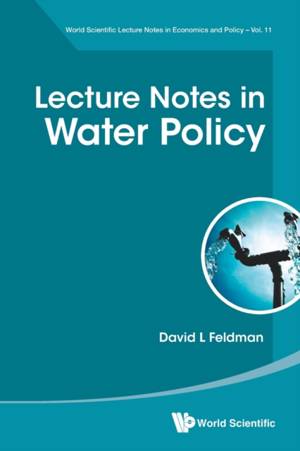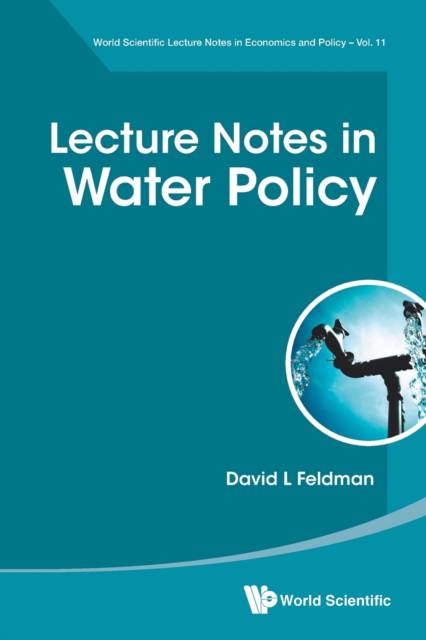
Bedankt voor het vertrouwen het afgelopen jaar! Om jou te bedanken bieden we GRATIS verzending (in België) aan op alles gedurende de hele maand januari.
- Afhalen na 1 uur in een winkel met voorraad
- In januari gratis thuislevering in België
- Ruim aanbod met 7 miljoen producten
Bedankt voor het vertrouwen het afgelopen jaar! Om jou te bedanken bieden we GRATIS verzending (in België) aan op alles gedurende de hele maand januari.
- Afhalen na 1 uur in een winkel met voorraad
- In januari gratis thuislevering in België
- Ruim aanbod met 7 miljoen producten
Zoeken
Omschrijving
Freshwater is our planet's most precious resource -- essential for life itself. Despite this fact, many people across our planet face difficulties finding safe, clean, potable water. A U.S. State Department report contends that the world's thirst for water may become a human security crisis by 2040. The World Bank reports many developing nations face catastrophe from intensive irrigation, urbanization, and deteriorating infrastructure. Also, numerous reports contend that in many places un-treated wastewater is still released directly into the environment. This is particularly true in low-income countries, which on average treat less than 10% of their wastewater discharges.In short, we face three imminent challenges regarding freshwater: (1) demands by agriculture, cities, industry, and energy production are increasing; (2) severe pollution from various contaminants and growing withdrawals are limiting the capacity of waterways to dilute contaminants -- threatening human and aquatic life; and, (3) climate change will cause periods of frequent and severe droughts -- punctuated by acute periods of flooding.The goal of this book is to illuminate how the governance of freshwater is a political, social, economic, cultural, and ecological challenge. The management and provision of water are not merely technical problems whose resolution hinges on hydrological principle, cost, or engineering feasibility. They are products of decisions made by governments, businesses, and interest groups that exercise control over who has access to water, how they use it, and in what condition they receive it. It discusses basic knowledge about water supply and quality; the evolution of water policy in different societies; the importance of water to human and environmental health; the role of law, politics, and markets in its allocation, use, and protection; and, the importance of ethics in its equitable provision.
Specificaties
Betrokkenen
- Auteur(s):
- Uitgeverij:
Inhoud
- Aantal bladzijden:
- 236
- Taal:
- Engels
- Reeks:
Eigenschappen
- Productcode (EAN):
- 9789811243189
- Verschijningsdatum:
- 1/03/2022
- Uitvoering:
- Paperback
- Formaat:
- Trade paperback (VS)
- Afmetingen:
- 152 mm x 229 mm
- Gewicht:
- 322 g

Alleen bij Standaard Boekhandel
+ 155 punten op je klantenkaart van Standaard Boekhandel
Beoordelingen
We publiceren alleen reviews die voldoen aan de voorwaarden voor reviews. Bekijk onze voorwaarden voor reviews.








